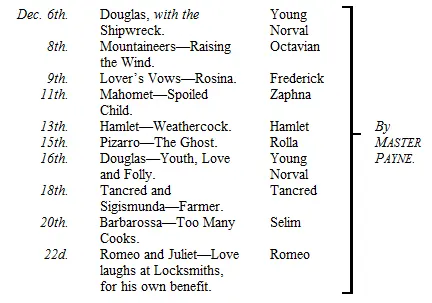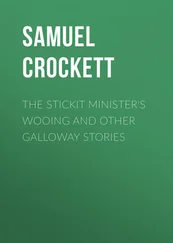Samuel Arnold - The Mirror of Taste, and Dramatic Censor
Здесь есть возможность читать онлайн «Samuel Arnold - The Mirror of Taste, and Dramatic Censor» — ознакомительный отрывок электронной книги совершенно бесплатно, а после прочтения отрывка купить полную версию. В некоторых случаях можно слушать аудио, скачать через торрент в формате fb2 и присутствует краткое содержание. Жанр: foreign_antique, foreign_prose, на английском языке. Описание произведения, (предисловие) а так же отзывы посетителей доступны на портале библиотеки ЛибКат.
- Название:The Mirror of Taste, and Dramatic Censor
- Автор:
- Жанр:
- Год:неизвестен
- ISBN:нет данных
- Рейтинг книги:3 / 5. Голосов: 1
-
Избранное:Добавить в избранное
- Отзывы:
-
Ваша оценка:
- 60
- 1
- 2
- 3
- 4
- 5
The Mirror of Taste, and Dramatic Censor: краткое содержание, описание и аннотация
Предлагаем к чтению аннотацию, описание, краткое содержание или предисловие (зависит от того, что написал сам автор книги «The Mirror of Taste, and Dramatic Censor»). Если вы не нашли необходимую информацию о книге — напишите в комментариях, мы постараемся отыскать её.
The Mirror of Taste, and Dramatic Censor — читать онлайн ознакомительный отрывок
Ниже представлен текст книги, разбитый по страницам. Система сохранения места последней прочитанной страницы, позволяет с удобством читать онлайн бесплатно книгу «The Mirror of Taste, and Dramatic Censor», без необходимости каждый раз заново искать на чём Вы остановились. Поставьте закладку, и сможете в любой момент перейти на страницу, на которой закончили чтение.
Интервал:
Закладка:
“There cannot be a stronger proof of the charms of harmonious elocution, than the many, even unnatural scenes and flights of the false sublime it has lifted into applause. In what raptures have I seen an audience, at the furious fustian and turgid rants in Nat. Lee’s Alexander the Great ! for though I can allow this play a few great beauties, yet it is not without its extravagant blemishes. Every play of the same author has more or less of them. Let me give you a sample from this. Alexander, in a full crowd of courtiers, without being occasionally called or provoked to it, falls into this rhapsody of vainglory:
Can none remember? Yes, I know all must!
And therefore they shall know it again.
When Glory, like a dazzling eagle, stood
Perched on my beaver, in the Granic flood,
When Fortune’s self, my standard trembling bore,
And the pale Fates stood frighted on the shore,
When the immortals on the billows rode,
And I myself appeared the leading god.
When these flowing numbers come from the mouth of a Betterton, the multitude no more desired sense to them, than our musical connoisseurs think it essential in the celebrated airs of an Italian opera. Does not this prove, that there is very near as much enchantment in the well-governed voice of an actor, as in the sweet pipe of a eunuch? If I tell you, there was no one tragedy, for many years, more in favour with the town than Alexander, to what must we impute this its command of public admiration? not to its intrinsic merit, surely, if it swarms with passages like this I have shown you! If this passage has merit, let us see what figure it would make upon canvas, what sort of picture would rise from it. If Le Brun, who was famous for painting the battles of this hero, had seen this lofty description, what one image could he have possibly taken from it? In what colours would he have shown us Glory perched upon a beaver ? how would he have drawn Fortune trembling ? or, indeed, what use could he have made of pale Fates , or immortals riding upon billows , with this blustering god of his own making at the head of them! where, then, must have lain the charm, that once made the public so partial to this tragedy? why plainly, in the grace and harmony of the actor’s utterance. For the actor himself is not accountable for the false poetry of his author; that, the hearer is to judge of; if it passes upon him, the actor can have no quarrel to it; who, if the periods given him are round, smooth, spirited, and high-sounding, even in a false passion, must throw out the same fire and grace, as may be required in one justly rising from nature; where those his excellencies will then be only more pleasing in proportion to the taste of his hearer. And I am of opinion, that to the extraordinary success of this very play, we may impute the corruption of so many actors, and tragic writers, as were immediately mislead by it. The unskilful actor, who imagined all the merit of delivering those blazing rants, lay only in the strength, and strained exertion of the voice, began to tear his lungs, upon every false, or slight occasion, to arrive at the same applause. And it is hence I date our having seen the same reason prevalent, for above fifty years. Thus equally misguided too, many a barren-brained author has streamed into a frothy flowing style, pompously rolling into sounding periods, signifying – roundly nothing; of which number, in some of my former labours, I am something more than suspicious, that I may myself have made one, but to keep a little closer to Betterton.
“When this favourite play I am speaking of, from its being too frequently acted, was worn out, and came to be deserted by the town, upon the sudden death of Monfort, who had played Alexander with success, for several years, the part was given to Betterton, which, under this great disadvantage of the satiety it had given, he immediately revived with so new a lustre, that for three days together it filled the house; and had his then declining strength been equal to the fatigue the action gave him, it probably might have doubled its success; an uncommon instance of the power and intrinsic merit of an actor. This I mention not only to prove what irresistible pleasure may arise from a judicious elocution, with scarce sense to assist it; but to show you too, that though Betterton never wanted fire, and force, when his character demanded it; yet, where it was not demanded, he never prostituted his power to the low ambition of a false applause. And further, that when, from a too advanced age, he resigned that toilsome part of Alexander, the play, for many years after never was able to impose upon the public; and I look upon his so particularly supporting the false fire and extravagancies of that character, to be a more surprizing proof of his skill, than his being eminent in those of Shakspeare; because there, truth and nature coming to his assistance he had not the same difficulties to combat, and consequently, we must be less amazed at his success, where we are more able to account for it.
DRAMATIC CENSOR
I have always considered those combinations which are formed in the playhouse as acts of fraud or cruelty: He that applauds him who does not deserve praise, is endeavouring to deceive the public; He that hisses in malice or in sport is an oppressor and a robber.
Dr. Johnson’s Idler, No. 25.PHILADELPHIA THEATRE

All those plays are well known. From the peculiar circumstances attending their performance they call for a share of particular attention, which would otherwise be superfluous. Where there is something new, and much to be admired, it would be inexcusable to be niggard of our labour, even were the labour painful, which in this instance it is not. The performance of Master Payne pleased us so much that we have often since derived great enjoyment from the recollection of it; and to retrace upon paper the opinions with which it impressed us, we now sit down with feelings very different from those, which, at one time, we expected to accompany the task. Without the least hesitation we confess, that when we were assured it would become our duty to examine that young gentleman’s pretensions, and compare his sterling value with the general estimate of it, as reported from other parts of the union, we felt greatly perplexed. On one hand strict critical justice with the pledge which is given in our motto, imperiously forbidding us to applaud him who does not deserve it, stared us in the face with a peremptory inhibition from sacrificing truth to ceremony, or prostrating our judgment before the feet of public prejudice: while, on the other we were aware that nothing is so obstinate as error – that fashionable idolatry is of all things the most incorrigible by argument, and the least susceptible of conviction – that while the dog-star of favouritism is vertical over a people, there is no reasoning with them to effect; and that all the efforts of common sense are but given to the wind, if employed to undeceive them, till the brain fever has spent itself, and the public mind has settled down to a state of rest. We had heard Master Payne’s performances spoken of in a style which quite overset our faith. Not one with whom we conversed about him spoke within the bounds of reason: few indeed seemed to understand the subject, or, if they did, to view it with the sober eye of plain common rationality. The opinions of some carried their own condemnation in their obvious extravagance; and hyperbolical admiration fairly ran itself out of breath in speaking of the wonders of this cisatlantic young Roscius.
Читать дальшеИнтервал:
Закладка:
Похожие книги на «The Mirror of Taste, and Dramatic Censor»
Представляем Вашему вниманию похожие книги на «The Mirror of Taste, and Dramatic Censor» списком для выбора. Мы отобрали схожую по названию и смыслу литературу в надежде предоставить читателям больше вариантов отыскать новые, интересные, ещё непрочитанные произведения.
Обсуждение, отзывы о книге «The Mirror of Taste, and Dramatic Censor» и просто собственные мнения читателей. Оставьте ваши комментарии, напишите, что Вы думаете о произведении, его смысле или главных героях. Укажите что конкретно понравилось, а что нет, и почему Вы так считаете.












